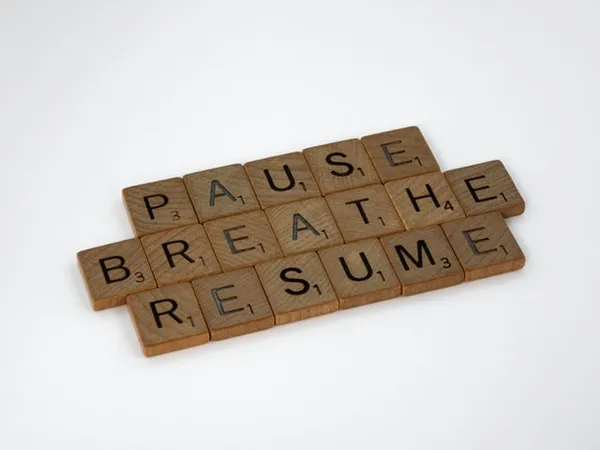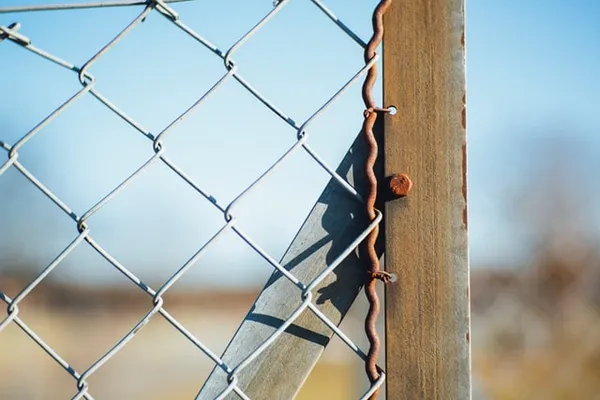Staying Balanced and Mindful
This blog post is associated with episode 19 of the podcast.
When we think about staying balanced, we might picture a balance beam and trying to stand on our tiptoes but always live in the constant fear of falling or toppling over. Or you might think of a server holding an unrealistic number of plates and trying their best not to drop all of the food. Just thinking of these images is quite stressful already and that seamlessly translates to our lives and how we balance aspects like work, health, family, friends, and alone time.

In the past few months of working with clients as a therapy intern, a common theme that I’ve noticed is difficulty with self-regulation. Self-regulation is the definition of the ability to manage your emotions and behaviour in accordance with the demands of the situation. To put it shortly, it’s how you manage yourself. This could be your stress management, how you react and respond to a situation, or engaging in practices like self-care and self-compassion. An adult with poor self-regulation skills often lacks self-confidence, has low self-esteem, and has difficulty with expressing their emotions like frustration or anger. Instead, they might begin to develop anxiety and see a negative impact in their relationships with themselves and others.
When we try to self-regulate, we’re working on pausing between a feeling and an action and really thinking about making a plan. Mindfulness plays a major role in how we can effectively and appropriately deal with situations. I’m sure many of us have heard about being mindful and present in situations but what does it really mean? It means that you’re aware of what’s happening, how you’re feeling, and what you’re thinking. Most importantly, you’re not judging what’s surfacing for you at that moment.
It’s understanding that we’re human, we have natural thoughts and processes, and those are our reactions. Instead, how we choose to respond should be the focus.

One example I’ve used in session to explain the difference between a reaction and a response is to imagine you’re driving on a dark night, it’s rainy, and you can’t wait to get home and settle in after a long day of work. Suddenly, the car beside you cuts you off without any signal. Most people would be angry, irritated, and even scared as an instant response.
Now, the next few seconds are the most important because you’re about to decide what to do. You could change lanes, speed up, and cut the person off. You could yell a bunch of profanities and flip them off. Or, it could be taking a deep breath, thinking “What the hell is this person doing?” and then moving on as you are.
This scenario is an example of practicing mindfulness and self-regulation. The next time you’re trying to make a decision or responding to a situation, I encourage you to take even a couple of seconds to think about what’s happening and what your body and mind are telling you.

Let’s also look at the research. In 2019, a review of 27 studies indicated that mindfulness helped improve attention and regulation of negative emotions and executive functioning. There is a large amount of research that supports the use of engaging in mindfulness practices or being present with what you need at the moment.
So I started my practicum in September 2021 and my calendar has been quite packed. I’m still working full-time (thank goodness I’m able to work from home) and I see clients Monday through Friday. I’ve been using my vacation hours to take off an afternoon a week to fit in my clients but mostly see them after work. I’m also still in school and have classes twice a month and assignments I need to complete as well as going to the gym three times a week, walking around an hour a day, and spending time playing video games and watching my shows.
One of the questions many people ask me is how I stay balanced or manage my time.
There are three concepts I want to go through: discipline, setting boundaries, and listening to your body and mind.
I have heard many people say that they’re feeling unmotivated and they don’t want to do something because of it. Motivation is also a great tool to help you kick into the ready gear. It happens when your dopamine, or the happy chemical messenger, spike because you’re anticipating something like a reward or positive outcome.
I like to think of motivation as something that comes and goes and is short-term. Relying on this is probably going to make it difficult for you to get a lot of things done. Instead, discipline means knowing that it’s something you would like to get done and doing it regardless of your motivation level.
There have been many times where I do NOT want to go exercise or rather sit at home to watch some YouTube instead of going out for a walk, but it’s also reminding myself that it would only take an hour or less to do it and I always feel better after a walk anyways. Even if I am unmotivated, I recognize the importance and benefits walking and going to the gym does for my health and I tap into my discipline pool to get it done. Over time, this becomes more natural and it’s developed as a habit. If I were to quantify it, I would say I am driven by motivation 20% of the time and by discipline 80% of the time. The most productive moments are when I am both motivated and disciplined.
Some questions for you to reflect on:

Are you a “yes” person? I used to be and I still struggle with this at times. I don’t want to disappoint people, I don’t want to seem like I’m not capable or that I can’t manage my time. By saying yes and constantly making exceptions, we are relinquishing our right to make a choice.
This is something I have become more aware and conscious about over the past few years. Instead of saying yes, I may offer an alternative, provide other resources or support, or just say no without having the need to justify it so I don’t feel guilty.
We’re often stuck in that train of thought that if we don’t do something for someone, they’re going to suffer - but what we don’t recognize is how it impacts us. Then we might think that we’re being selfish. Much like the theme of this episode of staying balanced, I encourage you to find that sweet spot. What works for you? What can you do about it?
For me, some ways I’ve set boundaries include:
Some questions for you to reflect on:

This one closely relates to setting boundaries and self-regulating. It’s a reminder for you to be mindful of what your body needs right now and what is realistic for you. The keyword here is realistic. It’s easy for us to think about the many things that are possible for us to do, but it’s another to consider what is actually realistic for us at this very moment.
Something I’ve been working on is not feeling guilty for telling people I am planning to stay home to play video games instead of going out because I need to reset and recharge at the comfort of my own home. Yes, it’s important to maintain a social life and be surrounded by friends who are supportive of you, but it’s equally, if not more, important to recognize what your internal battery level is at and what you need to recharge it.
Sometimes, it can be more draining than comforting to hang out with friends, even if you usually have fun or enjoy their company. Every moment we experience is different and that means our responses will differ too.
Sometimes, people will say, “Wow, how do you have time to play games every night? Shouldn’t you be working instead?” Sure, I can work 12+ hours a day but I also know that after a certain amount of time, my brain starts to get foggy and the quality of my work deteriorates. That’s because that internal battery is being depleted with the work I’ve put in during the day. So this is me listening to my body and my mind about what I need at the moment, and that’s to stop working for the day.
Some questions for you to reflect on:
Whether it’s engaging in mindfulness practices or being aware of your own self-regulation, I hope that this has reminded you of the importance of prioritizing yourself and your needs.
